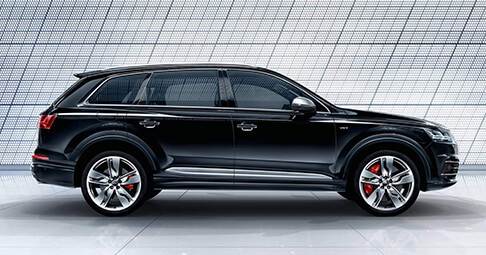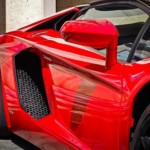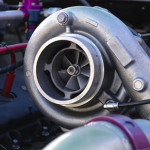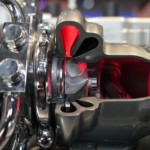
Audi SQ7. Image via Audi UK.
Audi unveiled its SQ7 TDI in March 2016 – a first in the use of electric turbochargers, in this case to complement its new 429-hp 4.0L V-8 diesel engine. The engine features three turbochargers: two exhaust-gas driven units and one fully-electrically driven. This lets it compete with BMW’s more powerful 3.0L 6-cyl. diesel.
The universal adoption of turbochargers speaks volumes of their functionality. Gone were the days when a turbocharger would meet catastrophic failure at high-speeds. Today, turbochargers are so reliable that car manufacturers deem it a necessity to include them in their newest designs.
Turbo Kits for Sale – contact APT-Turbo, the best Turbo Supplier in Malaysia.
Turbochargers to be in 80% of cars by 2017.
Turbochargers are also the answer to the ever-more-stringent regulations on emissions being put on car manufacturers to keep the air clean and to curb global warming as unanimously agreed by the US EPA, European Commission on Climate Action, Japan’s Ministry of the Environment (PDF: Japan’s Climate Change Policies, Initiatives in the Transport Sector).
BorgWarner states that without a breakthrough in battery technology expected anytime in the near future the only way to achieve emission-free driving is through the use of fuel cell electric cars (FCEV), and turbochargers are being developed for them as well.
Today, virtually all manufacturers understand the significance. Leading automobile manufacturers, including Honeywell and BMW, have stated their intention to take the development of turbochargers further, with a focus on electrically-driven hybrids.
Some have voiced their concerns that in the event of critical failure the costs of repairs will invalidate any savings from using a turbocharger, and the process of making replacement parts may very well void any greenhouse savings achieved.
Lead the charge! Contact APT-Turbo today for Turbos for Sale in Malaysia.
Types of Electric Turbochargers.
Eliminating boost lag and improving efficiency, electric turbochargers are especially beneficial to diesel turbocharger suppliers and manufacturers as both elements combine fuel-economy advantages. Diesel fuel contain more energy pound-for-pound compared to gasoline but were traditionally undesirable due to its loudness, high vibrations and smell.
Electric hybrids are being developed to serve the entire range of engine types, including hydrogen:
E-Charger – Essentially a traditional turbocharger with an electric motor that helps compress air quickly and at lower gas pressures. Alternatively, the E-Charger can be disconnected from the turbo to generate electricity for other parts of the car.
Full Electric Turbo – A completely self-sufficient unit that generates electricity to drive the turbo and/or other systems in the absence of exhaust gases.
Fuel Cell Air Supply (FCAS) – Similar to the aspiration combustion turbos except the oxygen is used to convert fuel cells into charged hydrogen ions. Fuel Cell Electric Cars (FCEV) are first-in-line for emission-free vehicles which release only water vapour when operated.
Feature image via Audi UK.




